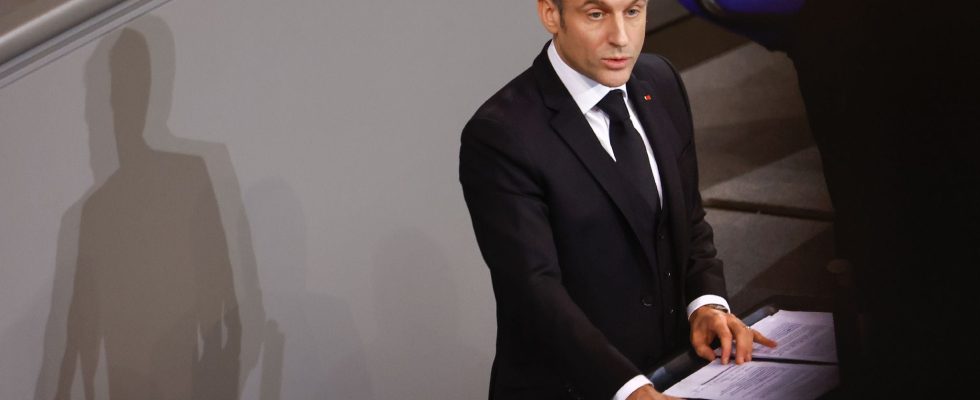What will remain of Emmanuel Macron’s now famous “ground troops”? The word too many that divided Ukraine’s allies and spoiled the emerging initiative for a better coordinated defense? Or on the contrary a deliberate tactical error, intended to shake up the coconut tree and advance a healthy debate? The French president has once again triggered one of these controversial hubbubs of which he has the secret. In question, his response to a journalist at the end of the conference in support of Ukraine which brought together the leaders of 25 Western countries at the Elysée on Monday February 26. He declared that if sending “ground troops” from the allies to Ukraine was “not a consensus today”, it remained possible, because “in dynamics, nothing should be excluded”.
Basically, Emmanuel Macron is right. If the objective of this exceptional summit is to send Vladimir Putin the dissuasive message of total determination, nothing should be excluded. Literally, he’s right too. His words reflect on the one hand the shared conviction that a victory for Putin would have immeasurable consequences on the security of Europe, and on the other hand the decided strategy: “… do as long as is necessary, and all which is necessary, so that Russia cannot win this war.”
But the president dropped the word too many: “ground troops”. The specter of an uncontrolled escalation towards total war. From Washington to Warsaw, leaders contradicted the French president. The German Olaf Scholz provided the most scathing denial: “No troops on the ground, no soldiers will be sent either by European states or by NATO members.” It was agreed between the participants of the meeting that this non-consensual and divisive subject in public opinion would not be raised, at least for the moment. The Frenchman, accustomed to lurching, once again skipped the stages.
Result: this meeting which began as a diplomatic exploit, successfully continued by the practical implementation of coordinated support, ended in a mess. The event meant to be a display of strength and unity turned into its opposite: a calamitous display of weakness and division. The Franco-German tandem, already in bad shape, is cracking a little more. At the Elysée and the Quai d’Orsay, we adjust as best we can. We minimize the use of the word “troops” (these would only be military units on specific missions), while praising the effectiveness of French ambition.
The March 7 meeting, a first test
This is not the first time that Emmanuel Macron has annoyed his European partners, for better and for worse. For the best in 2017, at the Sorbonne, with its project of European strategic sovereignty, first disapproved by German Chancellor Angela Merkel, then recognized by all as far-sighted and necessary. For the better again in 2019, with its observation of a NATO “in a state of brain death”, which initially upsets the Member States and ends up playing its role in the unexpected awakening of the Alliance in the face of the Russian invasion of Ukraine, February 24, 2022. He annoyed them for the worse in 2023, when he urged Europe not to follow the United States against China on the issue of Taiwan. For the worst still, when he spent the first months of the Ukrainian war trying to cajole Vladimir Putin, to the point of defending the inaudible principle of “not humiliating Russia”. He had succeeded in turning half of Europe against him.
It is not impossible that the fury caused by this new blunder by the French president will die down like a breeze. Or even that it has the effect of a salutary electroshock for which Europe will be grateful. Estonian Prime Minister Kaja Kallas gave him frank support. The countries of Eastern Europe welcome the unambiguous commitment of the one who no longer hesitates to define as an objective a “defeat of Russia” after having sought so hard to “not humiliate it”.
Emmanuel Macron is no more isolated than is Chancellor Scholz, criticized even in Germany for his permanent pusillanimity and his refusal to deliver its long-range Taurus missiles to Ukraine. The Ministers of Defense and Foreign Affairs will meet on Thursday March 7 to extend the Elysée summit. The atmosphere will be a first test of the success, or not, of the “ground troops” blunder.
* Marion Van Renterghem is a senior reporter, winner of the Albert-Londres prize and author of “Piège Nord Stream” (Arènes)
.
